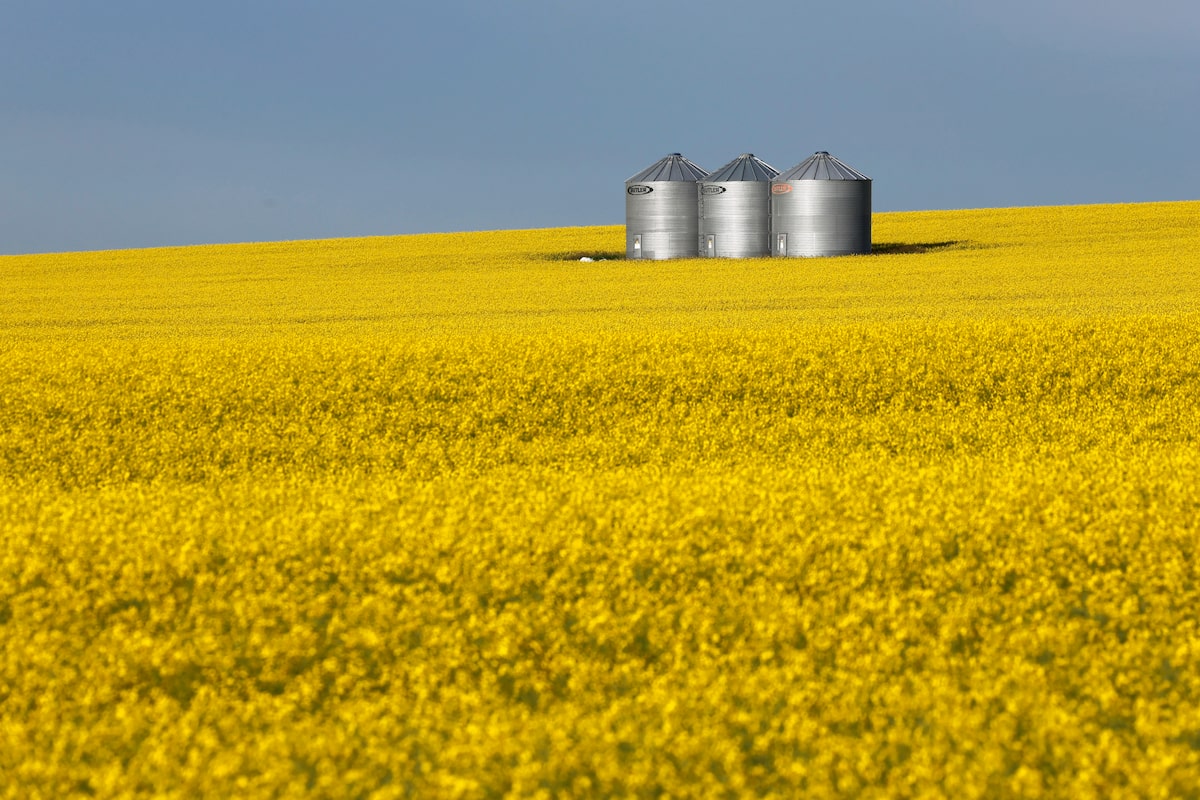Ottawa announced a new $370-million biofuel production subsidy and new domestic-content provisions in the federal Clean Electricity Regulations.LARRY MACDOUGAL/The Canadian Press
In a strategy largely aimed at providing a lifeline to Canada’s besieged canola farmers, Ottawa is promising a double-pronged approach to boosting the country’s biofuel industry.
The support, announced Friday by Prime Minister Mark Carney, will come in the form of a new $370-million biofuel production subsidy and new domestic-content provisions in the federal Clean Electricity Regulations.
Both measures, as well as raising interest-free limits for canola advances and additional spending on international agricultural marketing, are part of a series of moves intended to help sectors caught up in current trade wars.
Canola farmers have been hit especially hard. Like other sectors, they are suffering from trade protectionism in the United States, which has effectively shut the door to using Canadian crops for biofuels blended into products such as gasoline, diesel and jet fuel. At the same time, they are facing crippling tariffs in China, Canada’s other major canola export market, in retaliation for Canadian levies on Chinese-made electric vehicles.
Canada’s canola industry seeks U.S. biofuel policy exemption amid pressure from China tariffs
Details in Friday’s announcement about how the new measures will help boost domestic demand to counterbalance the trade woes were scant. But two government officials laid out how, combined, the measures are meant to maximize existing domestic biofuel production capacity – and the use of Canadian feedstock, primarily canola, for that production – while incentivizing additional capacity-building in the longer term.
The Globe and Mail is not identifying the officials because they were not authorized to speak publicly on the matter.
Of the two policies, the $370-million is likely to be implemented faster, is aimed at the more near-term impact and is a more direct response to U.S. actions in particular, the officials confirmed.
Those actions have recently included the expansion of tax credits for U.S. biofuel production, which has nearly put an end to U.S. biofuel imports according to the U.S. Energy Information Administration, while subsidizing U.S. exports into Canada and other markets. Washington has also effectively moved to restrict the use of canola imports as feedstock for that stateside production.
Parliamentary secretary, Saskatchewan Premier head to China as canola trade dispute wages on
While there is limited publicly available data showing the early impact on Canadian industry, Fred Bhatala – the president of the industry association Advanced Biofuels Canada – indicated in an interview that biofuel plants are operating below capacity as a result.
According to one of the government officials, the Canadian production incentives are likely to be offered as direct subsidies, rather than tax credits and are meant to respond in kind.
The potential changes to the Clean Fuel Regulations appear to be the more long-term play.
That highly complex policy, put in place under former prime minister Justin Trudeau, essentially targets emissions from fossil fuels sold and consumed domestically, primarily for transportation.
One of the pathways through which sellers can meet compliance obligations is by blending biofuels into their fuel mix. But the regulations, crafted when international tensions were not as high and when Canada was more cautious about international trade law, are currently agnostic about where those biofuels are sourced from.
Opinion: Ottawa can’t let our canola industry – a true Canadian success story – fade away
Now, the officials indicated, Ottawa will launch a consultation process meant to swiftly determine how to insert domestic-content requirements or incentives into the regulations. While that may help ensure maximization of existing production capacity and feedstock, the hope is that – combined with the production incentives – it will provide investment confidence for new Canadian facilities that would decrease reliance on export markets for canola.
There are some signs that the regulations could be more contentious. The opposition Conservatives have recently attacked the existing policy as another version of a carbon tax, and suppliers of gasoline and other fossil fuels could push back against the provisions if they prevent blending in the cheapest available biofuels.
However, the initial response from stakeholders to the measures was optimism and relief.
“Today’s announcement goes a long way toward creating the preferable situation where domestic feedstocks are turned into domestic fuels,” Mr. Bhatala said. “It’s always about the details, but the headlines in the announcement are very positive and indicate a return to viability of Canada’s clean fuel sector.”

